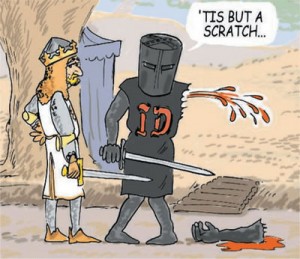The notion of the lonely writer, shrouded in solitary genius, is a myth easily debunked by nearly any writer making money today. In reality, a writer treasures the feedback provided by editors and test audiences, and of course, the all important writer’s group.
While an editor can help professionally, writer’s groups are a great way to get feedback on a work in progress from similarly talented individuals, and naturally, a great place to meet friends with similar interests. Trading favors, reviewing others’ work in exchange for some reviews of your own, is a great symbiotic relationship many writers could not live without. The challenge, however, is finding a group that really works for you, and it is possible to make many missteps along the way.
Finding that perfect group is worth the challenge, but where to begin? The first step is to find some candidates. Fellow group members can be recruited from real life acquaintances, but if you do not know enough interested writers, you could always go online. Sites like Craigslist can be used to find and setup a meeting between interested people in your area, or, if you are not successful there, you could also consider expanding your search and hosting a virtual writer’s group where writing and feedback are exchanged completely online.
Once the candidates are selected, the next important thing to consider is scheduling. Each member of the group will invariably have their own conflicts that will have to be scheduled around, be they work or family commitments. A day and time should be selected that works best for everyone in the group. The next question is a matter of frequency: how often should you meet? It is easy to start off overly ambitious, wanting to meet each week or even several times a week, but this could be a mistake. Meet too often, and you risk burning out and making the group more of a burden on everyone than it needs to be, but this all depends on the determination of all the group members. The rule of thumb here is that everyone needs enough time to read their assignments, be they sample chapters, shorter or longer excerpts, and develop commentary and feedback. I would not recommend meeting more than once a week, and feel that meeting every other week has worked well for several of my writers’ groups in the past. How long will each meeting last? Keeping the group small, especially in the beginning, can help keep the meetings manageable. Remember: you need enough time to address each person’s work, plus a little time to catch up and socialize as your group grows close.
Finding fellow members and a consistent schedule that works for everyone is the hard part. What’s left is to iron out some of the nuances. Where will your group meet? Is someone willing to host the group in their home each time? Perhaps a rotating set of homes? If that is not especially convenient, you could always meet in a coffee shop, or a library if they have a conference type room available for use. Will snacks or drinks be served? Be careful on this point. I belonged to a writer’s group that was essentially BYOB; everyone would bring a bottle of wine, a six pack, what have you, to enjoy during the discussions. It really did sound like a good idea to us at the time, but it made us the complete opposite of productive. By the end of the hours long meeting, we were all pretty tipsy and sloppy with our critiques. Drink with extreme caution!
While it can be a lot of work to find interested members and a consistent schedule that works for everyone, once the group is up and running each member will have an irreplaceable addition to their repertoire: a source of free editing and feedback, and maybe even a new friend of two.

